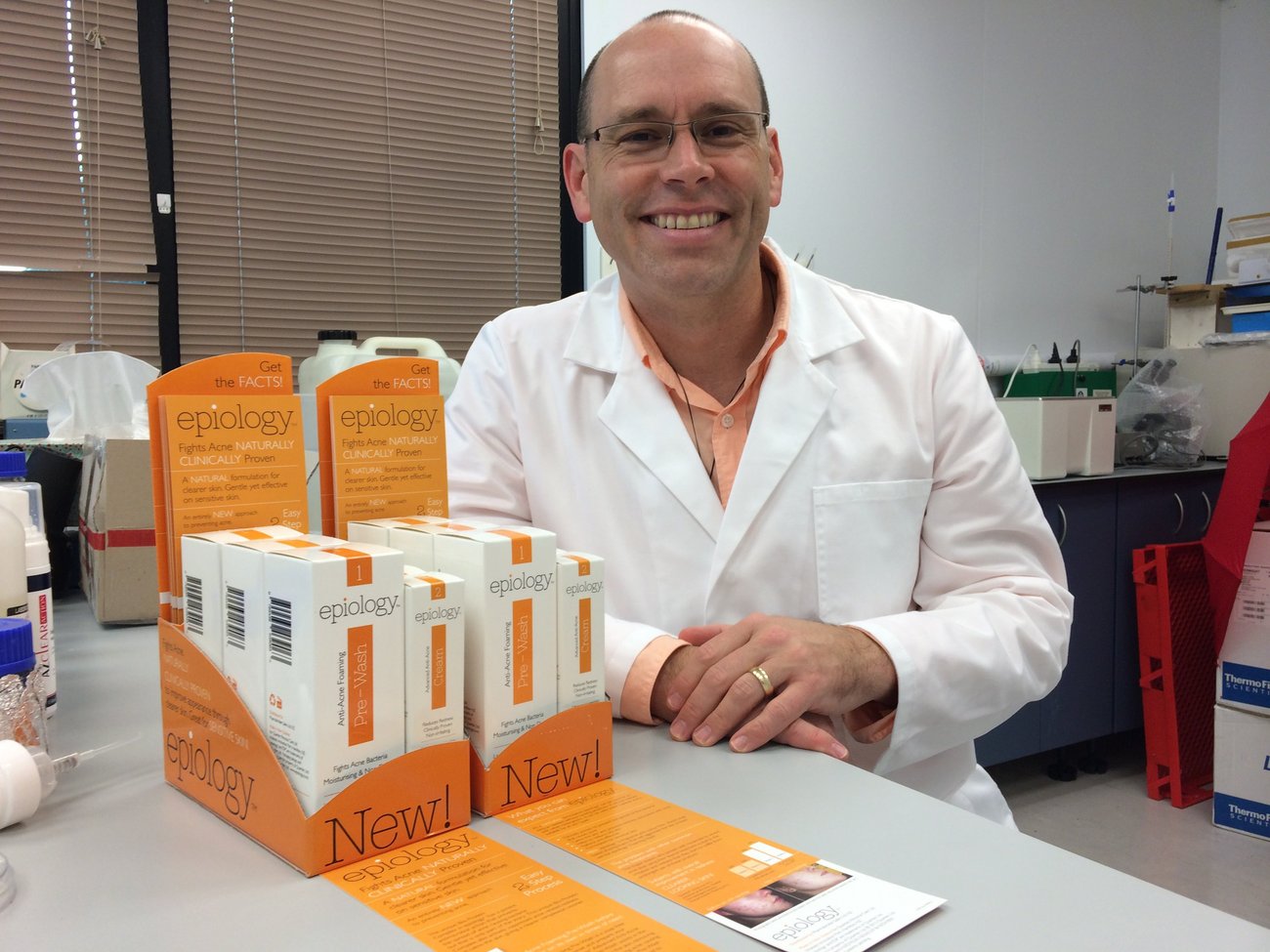
Yes, acne cream.
Hamilton-based Kiwi biotech startup Quantec Ltd is using an ingredient in cow’s milk as one of the key components of its anti-acne cream, which it is now hoping to sell globally, starting with a distribution deal with Mexico-based outfit Fenrir Business Development SA de CV (FBD).
“Capturing value from dairy is our number one goal,” says Quantec founder and managing director Dr Rod Claycomb.
“When we discovered a small part of milk that protects the cow from infection and inflammation, we knew it could be used for higher value human health applications.”
Available in New Zealand pharmacies since May 2014, Quantec’s cream – dubbed epiology – uses a milk protein known as IDP, which is used by cows to fight infection. Claycomb says the fact that it’s natural makes it safer than other anti-acne products.
“Being natural, it contains none of the harsh chemicals typically used on skin affected by acne, such as salicylic acid or benzoyl peroxide, both of which, while effective, also increase irritation,” he says. “IDP acts as an inhibitor of the bacteria that cause acne and also acts to reduce the redness and irritation caused by subsequent infection.”
He says: “We discovered IDP in 2006 and, after a few years of characterising its bioactivities, started working on acne applications in 2011. After three years of clinical studies to prove its effectiveness, we launched IDP as the active ingredient in epiology in 2014. So, while we don’t disclose actual costs, suffice it to say that doing the job thoroughly is not cheap!”

Dr Judy Bragger with epiology Skincare
While some may be surprised by the choice, according to Claycomb, expanding operations to Mexico was a natural choice.
“Mexico is one of the largest skin care markets in the world,” he explains.
“The personal care value chain in Mexico is unique in the world, in that most of our target market – young to middle-aged women – frequent professional dermatologists and are used to paying premiums for proven products. So, while competition is fierce, the regulatory environment there and the innovative approach to personal care make it good first-tier market for epiology and a nice stepping stone into the rest of Central America.”
According to FBD general manager Fernando Alvarez, acne product category sales in Mexico are worth about $83 million, with studies showing roughly 44 percent of Mexicans with acne contact a dermatologist. While Claycomb couldn’t reveal exact details of the distribution deal with FBD or future plans, he said the Chinese and North American markets could be future targets for Quantec due to their size.
“The global acne market is worth US$3 billion (NZ$3.9 billion),” he says. “While it’s quite competitive, we believe that the key differentiators for epiology brand mean it could achieve up to a 5 per cent global penetration. So the potential is quite large for us.”
Claycomb says Quantec’s experiences show that perseverance is sometimes necessary for Kiwi companies looking to expand their business.
“Good things take time,” he says. “Stick with trying to solve a real problem with a solution that’s unique.”




